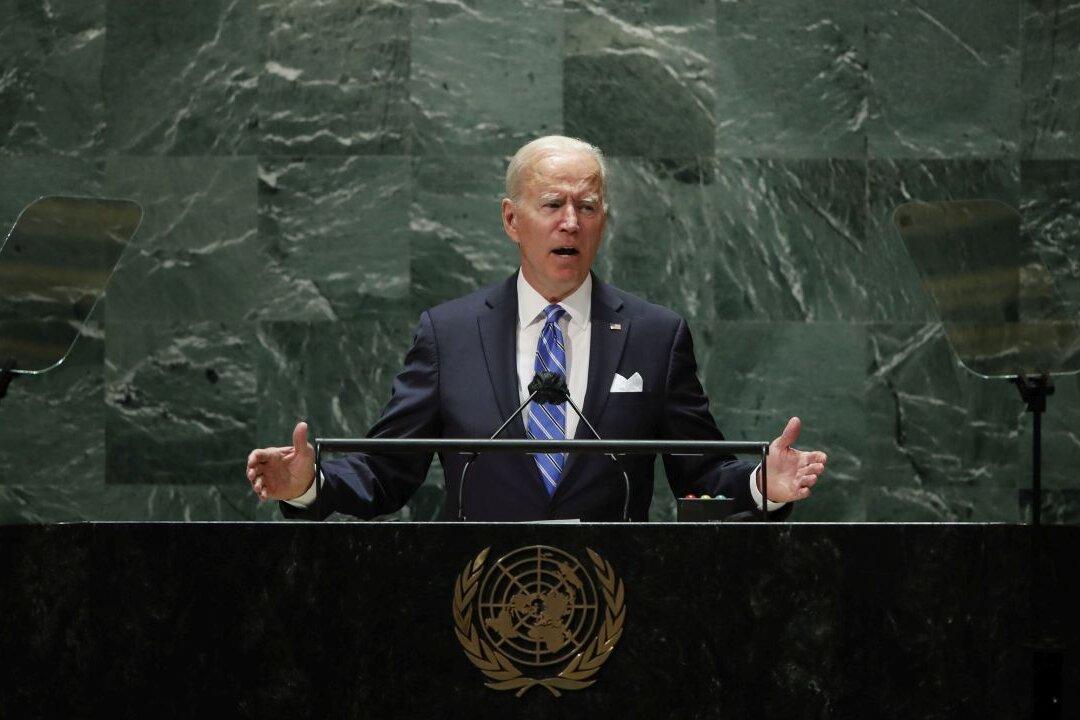President Joe Biden delivered his first address at the U.N. General Assembly in New York on Sept. 21, declaring that the United States is “back at the table.”
“We’re back at the table in international forums, especially the United Nations, to focus attention and to spur global action on shared challenges,” he told the assembly, emphasizing alliances within the North Atlantic Treaty Organization, the European Union, the Association of Southeast Asian Nations, and others.





